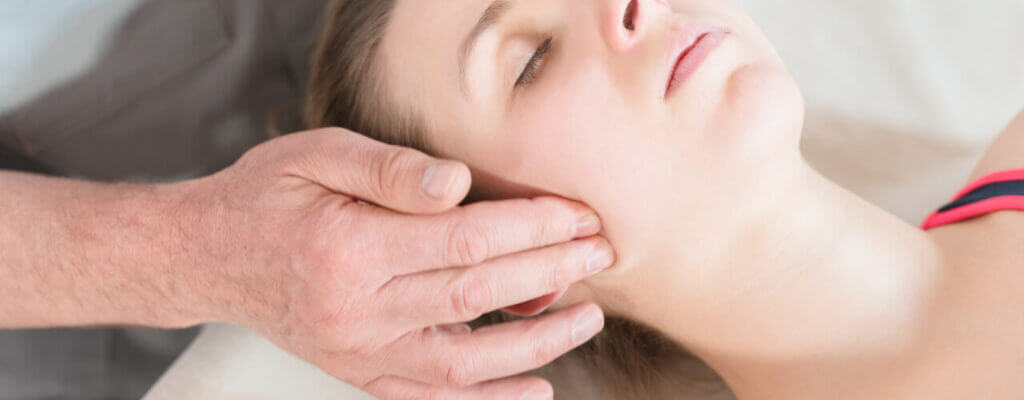When you see someone clutching their head, you may assume either that they are under extreme stress, or that they have a headache. You may be right to assume both! Physical and emotional stress can cause tension headaches; they can also trigger cervicogenic and migraine headaches, any of which can leave you effectively disabled.
Did you know that headaches are the third most common pain complaint? It’s true. Headaches are extremely common and can be so debilitating to the point that they impact a person’s quality of life. Dealing with headaches daily can be very isolating and leave a person feeling exhausted.
You may struggle with chronic or recurring headache pain yourself — in which case, you’re probably tired of taking pain relievers all the time. It’s time you found a better answer by consulting our physical therapist.
Physical therapy can ease your headache symptoms by treating their underlying causes, giving you a safer, more sustainable headache management strategy.
Types of headaches and their causes
Below are 10 common types of headaches, according to Healthline.
- Cluster
- Hormone
- Caffeine
- Migraine or sinus
- Stress (tension)
- Post-traumatic
- Exertion
- Rebound
- Hypertension
If you’re unsure what kind of headache you’re experiencing, no problem! Your physical therapist will be able to diagnose and treat it accordingly.
Migraines are the most dreaded of headaches. A migraine attack may go far beyond the crushing headache it is notorious for producing, causing symptoms such as:
- Nausea and vomiting
- Faintness
- Sound and/or light sensitivity
- Visual distortions known as “auras”
While it’s hard to pin down the underlying causes behind migraines, many of the triggers are well known — and they include stress. In addition to various foods, bright lights, loud sounds, weather changes, and hormonal swings, migraines can be set off by physical overexertion or emotional strain. Poor posture and arthritis are two other potential causes.
Cervicogenic headaches originate in the neck. These headaches are often caused by alignment problems or imbalances in the cervical spine. These imbalances place the neck muscles under physical stress, producing both headaches and neck pain. Emotional stress can also play a role in cervicogenic headaches since the muscle tightness they create can help to pull the neck out of alignment.
How does stress cause headaches?
Emotional stress and physical stress are closely linked, with either capable of causing or aggravating the other. Perceived crises can cause muscles to tighten up as the body goes into “fight or flight” mode.
When that tightness affects small muscles at the base of the skull, such as the RCPM muscle in the neck, those muscles may pull on a pain-sensitive membrane in the head called the dura mater. The dura mater responds by sending out waves of pain, giving you a classic tension headache.
Depression and anxiety issues can also lead to tension headaches. Also, there may be an underlying cause to your stress-related headaches. An accident or injury to the neck or back can contribute to headaches.
How can physical therapy help with headache pain?
The occasional headache can be relieved by pain-relieving medications such as NSAIDs, but they can not resolve the pressures that contribute to chronic headache problems. You should switch to physical therapy for that type of relief.
A detailed assessment will be carried out by our physical therapist, including an examination of your neck and cervical spine, a discussion of your symptoms, and consideration of lifestyle factors that may be causes of stress. This history helps will help them to establish a curriculum of headache treatment primarily rooted in stress management and its consequences.
Your treatment plan will most likely consist of some or all of the following techniques and pain-relieving methods:
- Dry needling to ease stress-induced tension and pain
- Ergonomic adjustments such as changing your computer monitor height (to prevent constant neck droop)
- Exercises to limber up your neck or strengthen your neck muscles
- Massage therapy to relax a chronically tight neck
- Chiropractic adjustments to correct cervical spinal alignment
- Suggestions for changing or sleep position or trying a different kind of pillow
- Mindfulness exercises such as yoga to help you add more serenity to your daily life
Address your stress-related headache pain, once and for all
There’s no reason you need to continue living in constant pain and discomfort with so many treatment options available to you. Conquer your stress, and you may just conquer your chronic headaches as well. Get in touch with our physical therapist in Mount Clemens or Macomb, MI to learn more about this drug-free approach to headache relief!
Tags: health, wellness, PT, physicaltherapy, achesandpains, physicaltherapist, healthandwellness, healthytips, naturalpainrelief



